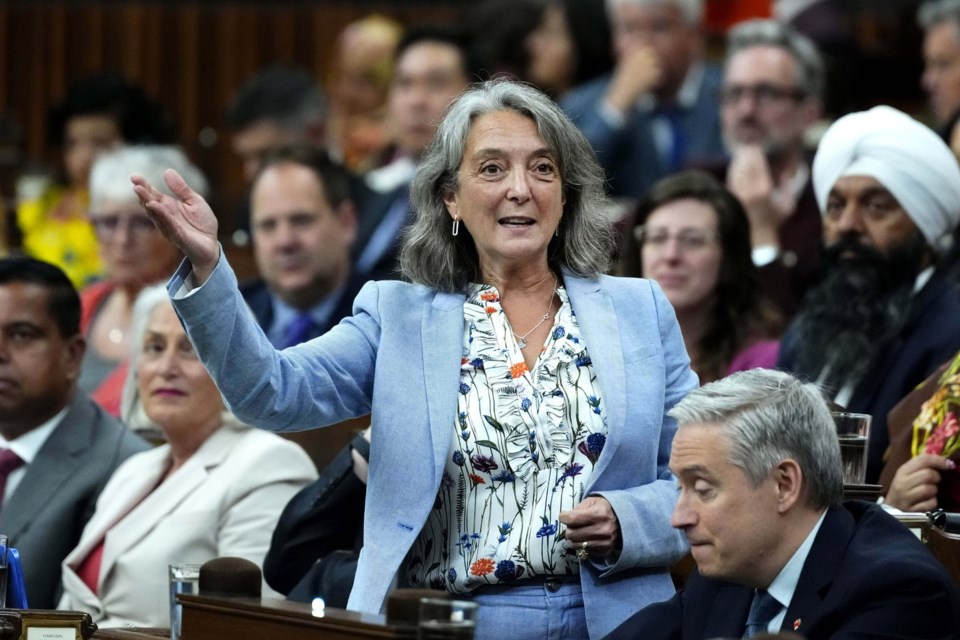OTTAWA — The federal government intends to bring back consumer rebates for electric vehicles but doesn't yet quite know what they'll look like, Environment Minister Julie Dabrusin said on Tuesday.
The federal government launched its rebate program — the Incentives for Zero-Emission Vehicles program or iZEV, — in 2019, but it ran out of funding earlier this year, leading Ottawa to pause the program.
Speaking to The Canadian Press while leaving the House of Commons — where she spent the better part of question period fending off Conversative criticisms of Ottawa's EV mandate — Dabrusin said a renewed consumer rebate is something being worked on.
"Will it be named, iZEV? That I can't tell you. But there will be a consumer rebate," Dabrusin said.
The iZEV program offered up to $5,000 off the cost of a new electric vehicle. Between May 2019 and January 2025, the federal government spent nearly $3 billion on the EV rebate program for more than half a million new passenger vehicles.
The Liberal platform during the election suggested it would look for a way to reintroduce the $5,000 rebate program.
Conservatives spent Tuesday in Ottawa calling for the mandate to be scrapped, citing concerns about an auto sector threatened by U.S. tariffs, and debating an opposition motion to compel the government to "immediately end their ban on gas-powered vehicles."
"Right now (the Liberals) have a mandate in place that makes it so that Canadians will have to buy EVs. But that does not fit the needs of Canadian families," said Lethbridge MP Rachel Thomas during question period.
"If the Liberal government is truly going to stand with auto workers, then stop making the very vehicles that they're producing illegal."
Canada's electric vehicle mandate requires all new light-duty passenger vehicles sold to be zero-emissions by 2035. Sales of used gas-powered vehicles will still be allowed after 2035. Plug-in hybrid vehicles would also be allowed for sale.
"It's been in place since 2023. I don't see why the Conservatives believe we need to change it in the face of what we're facing with the U.S. tariffs on the auto industry," Dabrusin told The Canadian Press following question period.
Canada's auto manufacturers have grown on their calls for the government to repeal the mandate, as EV sales dropped in early 2025 as the rebates ended.
Electric vehicles remain more expensive than their gas-powered equivalents.
The first quarter of 2025 saw zero-emissions vehicles represent only 8.11 per cent of all new vehicle sales in Canada — a drop from the 16.5 per cent in the fourth quarter of 2024, according to data from Statistics Canada.
On a monthly basis through 2024, the share of EVs among new vehicle sales never dropped below 10.65 per cent, and peaked at 18.29 per cent in December.
In April of 2025, the most recent data from StatCan, EV sales dropped to 7.53 per cent of all new vehicles off of Canadian lots.
Beginning in 2026, the government's EV mandate requires at least 20 per cent of new light-duty vehicles offered for sale in that year be zero-emission. That share rises each year until it reaches 100 per cent in 2035.
This report by The Canadian Press was first published June 17, 2025.
Nick Murray, The Canadian Press



